
Balance Your Hormones, Balance Your Life
This book Combines Eastern medical theory with Western science to provide uncommon insights into hormones, women’s health concerns, lifestyle and diet. It goes well with Women’s Health & Hormones, Part I: Hormonal Balance & Stagnation–our online course that is really meant to go with this book, nice dark chocolate and goblet of grape juice.
$15.98
Description
Balance Your Hormones, Balance Your Life: Achieving Optimal Health and Wellness through Ayurveda, Chinese Medicine, and Western Science
This book Combines Eastern medical theory with Western science to provide uncommon insights into hormones, women’s health concerns, lifestyle and diet. It is designed to be readable and accessible for all women, and anyone who wants to understand women’s health, be they students or practitioners of Western medicine, Ayurveda, Traditional Chinese Medicine, or simply of life. It is not important to have any background in any medical system to appreciate and grok this book, but it also offers new perspectives to seasoned medical practitioners. It is for women in any stage of life, interested in improving her health and life and understanding and addressing issues like hormonal balance, menstrual difficulties, fertility, heart health, menopausal symptoms, osteoporosis, breast health and other common concerns.
I also invite you to take Women’s Health & Hormones, Part I: Hormonal Balance and Stagnation, our online course that you can begin anytime, that complements this book. The two contain supportive– but not repetitive– information. Both are recommended for everyone, from those of us simply looking to live true, sweet healthy lives, to those wishing to (finally) understand hormones, to those with no medical knowledge, to physicians to advanced students of Ayurveda, Chinese medicine and of life in general.
If you purchase this book here, you will receive a free download of Dr. Welch’s Prana visualization, “Softening the matrix”.
INTERNATIONAL SHIPPING
We regret that we are unable to ship internationally. We suggest trying Amazon, as they are able to ship at a fraction of what we would have to charge. Thank you.
LARGE QUANTITY ORDER
You receive a discount if you order bundles of 10 books at a time.
A couple years ago I spotted a bizarre headline in the New York Times. “The New Modern Woman, Ambitious And Feeble,” it read. The article criticized certain popular TV shows for creating heroines who were driven, neurotic, anxiety prone, and undernourished. The author of the article decried these shows, concerned that viewers would emulate the shows’ “ambitious and feeble” role models. Although the headline was obviously a generalization about American women, it was not without merit. I am a Western woman who is also a Doctor of Oriental Medicine. Over the years I have seen that the medical problems of most women who come to me are rooted in a hormonal imbalance brought on by doing too much while getting too little physical and emotional nourishment, not unlike the feeble heroines. What’s more, their hormones have been out of whack for an extended period of time. I’m not just talking about menopausal women. I mean women of all ages, women whose medical problems range from painful periods, mood swings, fatigue, and insomnia to infertility, uterine fibroids, hot flashes, heart disease, and osteoporosis. Whereas Western medicine emphasizes the separate domains and functions of various kinds of hormones in the body, Eastern medicine emphasizes the context within which they exist and how they relate to each other. Combining Eastern and Western perspectives, we see two major types of hormones that affect a woman’s health: stress hormones and sex hormones. Having the right balance of these hormones gives us plenty of energy, deeper sleep, healthier menstrual cycles, happier dispositions, easier menopauses, healthier hearts, stronger bones, and much, much more. When we experience stress (self-induced or otherwise), our body releases extra stress hormones until the “danger” resolves itself, thus throwing off our hormonal balance. When our whole lives are stressful, this imbalance becomes chronic. Healing begins when we start to live the life we really want to be living. Then we have less stress and the levels of stress hormones in our bloodstream drop. When our stress hormones are not rampant, our sex hormones have a better chance to work the way they are supposed to, and we experience the well-being that comes from having balanced hormones. How Did We Get into This Situation? Advertising has us chasing cars and clothes, working jobs we hate so we can buy shit we don’t need. —Fight Club, Based on the novel By Chuck Palahniuk Many modern women mistake the feeling of being under stress for having energy, and putting ballast in the stomach for getting real sustenance. We think a woman has a lot of energy, for example, if she is a soccer mom and a full-time career woman. She starts running at dawn and doesn’t rest until late evening, if she rests at all. Perhaps she grabs some fast food, a doughnut, or even healthy food, but she bolts it down to ground her so she can continue running. She’s the human equivalent of the Energizer Bunny. She is driven by the need (or “ambition,” as the headline writer called it) to do it all. But from the perspective of Eastern medicine, her health is becoming fragile, maybe even “feeble.” The Eastern concept of energy is quite different from that of our Western Energizer Bunny. In the East, energy is called qi (also spelled chi) or prana and it is the life force. Have you ever seen someone practicing tai chi or qi gong? If so, you’ve seen how the practitioner expends her energy—her life force—economically and efficiently, as an extension of her peace of mind. She nourishes her life force with whole and freshly cooked food that agrees with her, by breathing clean air, and by keeping good company. She has balance in her life. This balance, in turn, affects her life: Her equanimity is reflected in her hormonal levels. They, too, are in balance. She is happy and her health is hearty. Her life force, or qi, is strong and its flow unimpeded. We’ll go deeper into the concept of qi or prana later. (You can also see Appendix B for more discussion of prana). For now, let’s get back to our poor Energizer Bunny. She needs help. It is one thing to go through a crunch period of high stress for a day, a week, a month, even two months. This happens to all of us, and our bodies, minds, and spirits can recover from it. We might even be able to tolerate it for a year or two. When we go through stressful times, we survive them by living on “credit,” borrowing from our reserves of good health. When the stressful time passes, we regroup and rebuild. Trouble arises when stress is prolonged and our reserves become too depleted. We no longer have the resources to combat the effects of the excess stress hormones in our systems. An overabundance of stress hormones outweighs the nourishing effects of our sex hormones and leads to the breakdown of bones, skin, muscles, and brain tissue. This is when we start feeling seriously off-kilter and require serious repair. While there is always hope that we can regain our health, it will be an uphill climb. It is far easier to maintain our health than regain it. Eastern medicine teaches us that humans are an aspect of nature and are governed by her laws. Our minds are individual mirrors of the cosmic consciousness and our bodies are microcosms that reflect the state of the world around us. What happens to the one is reflected in the other. For example, look at what happens in the macrocosm of the economic world. When we experience financial crisis, often borne of spending money we don’t have year after year, it becomes a sticky prospect to fully regain economic health. In the microcosm of the world that is a woman’s body, it is not uncommon for her to outspend her energetic and nutritional resources. Between holding down a job, maintaining relationships, and caring for her family, a woman often blows through the energy she “earns” from sleep, good food, and good company. Her daily needs repeatedly outpace her daily intake of energy. The result? She has to dip into her reserves, which depletes her core nourishment. This is no more sustainable than spending money we don’t have. Just as there comes a time when we can no longer ignore financial debt, there comes a time when energy deficit becomes unsustainable. When that happens, it is not only economies that need bailouts. Our bodies and minds do, too. How does hormonal imbalance come into this picture? When a woman is stressed, her body releases stress hormones. These hormones make her hyper- vigilant and they key up her nervous system until it is hypersensitive. In this state, she begins to experience even benign events as critical situations. This, in turn, stimulates the release of even more stress hormones. A vicious cycle begins. There is no easy resolution to the stress, because it is caused by not only external factors but ongoing internal factors, such as the woman’s desire to meet all of her family’s needs, her boss’s needs, her friends’ needs, and her own expectations. The long-term oversaturation of a woman’s cells by stress hormones throws her hormonal balance out of whack and triggers a host of maladies. True, some stressors are beyond our control: the death of loved ones, natural disasters, or the loss of a job, for example. But others stressors are ours to relieve, such as the stress created by our worldviews and values, our choices about what we deem essential or desirable in our lives, and the efforts we make to achieve those things. Credit problems are initiated in part by the belief that we need more than we can afford. To acquire or achieve those things, we put ourselves under stress so routinely that it becomes habitual. And as with all habits, we stop noticing we are doing it. We become so chronically stressed, we may not even realize it’s not our natural state. Maybe we know intellectually that our lives are stressful and need changing. Maybe we know this physically, as our bodies send us distress signals like headaches, irritable bowels, sleeplessness, hot flashes, feelings of tightness in our throats or chests, or overwrought emotions. Maybe we hear these pleas from our bodies, but we don’t know how to stop running, pushing, overreaching ourselves. We are afraid that if we stop, something terrible will happen. We’ll lose our jobs. Our lovers will leave us. Our families will collapse. Our personal worlds will come crashing down around our ears. So we keep going, going, going. And our hormonal balance becomes the victim. Are We Talking About You? Try this little quiz. Check the things that apply to you. If you answered yes to even one of these questions, it is likely your hormonal balance is affected. To persevere on our busy course doesn’t usually require courage. It takes an overly developed sense of responsibility—or a tendency to hope that everything will get better even if we don’t do anything differently. What really takes courage is to stop—stop running, stop pushing, stop trying to please everyone, stop out- spending our reserves. Just stop. Stop and begin to live the life we really want to be living. When we do, I have found that our worlds do not come crashing down. On the contrary, if we take little steps to slow our pace and have more time, we find life becomes more enjoyable, even easier; and we begin to gain the confidence to slow things down further. The downward cycle becomes an upward spiral that gains momentum and delivers us into a life saturated with more joy than stress, more meaning than emptiness, and more health than disorder. –Excerpt from the beginning of, Balance Your Hormones, Balance Your Life, Achieving Optimal Health and Wellness through Ayurveda, Chinese Medicine, and Western Science by Dr. Claudia Welch. Copyright 2011. No reproduction without permission from publisher.The Stress Epidemic
Reviews (0)
Only logged in customers who have purchased this product may leave a review.



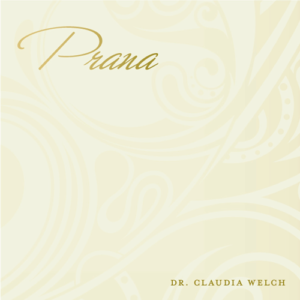

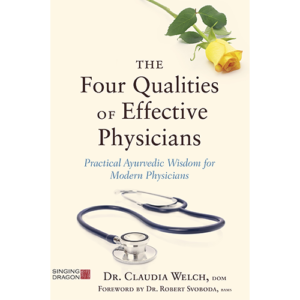
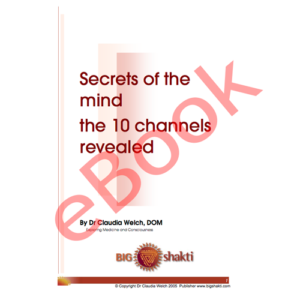
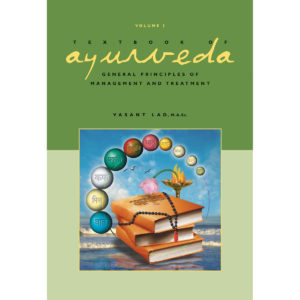
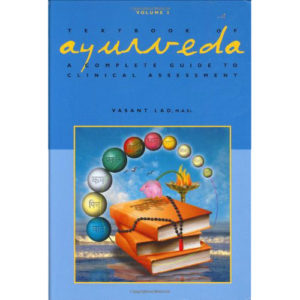

Reviews
There are no reviews yet.